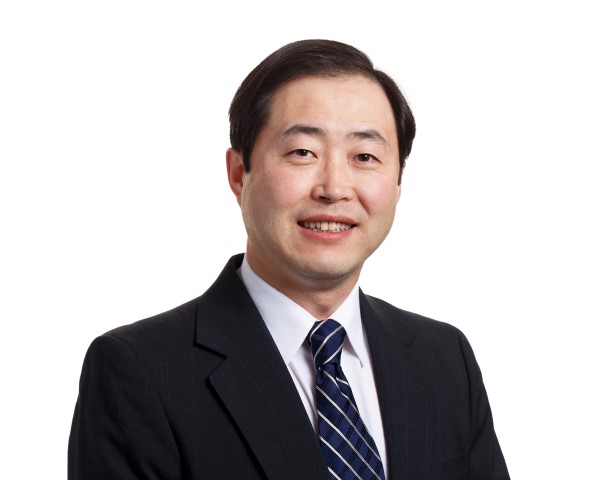- ABOUT ME
- AREAS OF FOCUS
- EDUCATION & LEADERSHIP
- LOCATIONS & HOSPITALS
- NEWS & PUBLICATIONS
I cherish practicing in a patient-centered and collegial environment. I am devoted to timely communication and providing high-quality care to all my patients. The trust of my patients and colleagues is the best reward for me.
Dr. Wang was drawn to the field of Gastroenterology because of the diverse disease pathologies and opportunity for both intellectual challenges and procedural skills. His clinical interests are focused on screening, prevention, and using therapeutic endoscopy techniques to facilitate the diagnosis and treatment of gastrointestinal cancers.
Dr. Wang was fortunate to have trained at multiple leading medical institutions in the US. He enjoys living in Portland because of the beautiful natural wonders and pleasant people. Dr. Wang has been very happy to establish his medical practice and raise his family here. Outside of work, Dr. Wang enjoys cooking, gardening, and spending time with family and friends.
 Volunteer Activities
Volunteer Activities
Faculty of ERCP hands-on course at ACG Annual Conference, San Antonio, TX, 2019
 Other Activities
Other Activities
Member, American College of Gastroenterology
 EDUCATION & TRAINING
EDUCATION & TRAINING
Fellowship, Therapeutic Endoscopy, MD Anderson Cancer Center, Houston, TX, 2012
Fellowship, Gastroenterology & Hepatology, Brigham and Women’s Hospital, Harvard Medical School, Boston, MA, 2011
Internship & Residency, Internal Medicine, University of Washington School of Medicine, Seattle, WA, 2007
MD, Peking Union Medical College and Chinese Academy of Medical Sciences, Beijing, China, 1997
 BOARD CERTIFICATION
BOARD CERTIFICATION
Gastroenterology
 HONORS
HONORS
Portland Monthly Magazine, “Top Doctors”, 2022
Best Papers of the Year, Toxicological Sciences, 2001
Outstanding Toxicological Research Award, Society of Toxicology, 2000
Visiting Fellowship, National Institutes of Health, 1998 – 1999
 Publications
Publications
Yao W, Rose JL, Wang W, et al. Syndecan 1 is a critical mediator of macropinocytosis in pancreatic cancer. Nature. 2019 Apr; 568(7752): 410
Wang W, et al. Utilization of EUS-FNA in diagnosing pancreatic neoplasm without definitive CT finding. Gastrointest Endosc. 2013 Jul;78(1):73
Wang W, et al. Metastatic prostate cancer to the pancreas. J Clin Oncol. 2013 Jul 20;31(21):e367
Ying H, et al. Kras is required for pancreatic tumor maintenance through regulation of hexosamine biosynthesis and the non-oxidative pentose phosphate pathway. Cell 2012 Apr 27;149(3):656
Ding Z, et al. Telomerase Reactivation following Telomere Dysfunction Yields Murine Prostate Tumors with Bone Metastases. Cell. 2012 Mar 2;148(5):896
Ying H, et al. Pten is a major tumor suppressor in pancreatic ductal adenocarcinoma and regulates an NF-κB-cytokine network. Cancer Discovery. 2011, 1(2):158.
Wang W, et al. Analysis of methylation-sensitive transcriptome identifies GADD45a as a frequently methylated gene in breast cancer. Oncogene. 2005, 24(16): 2705.
Wang W, et al. TAFII70 isoform-specific growth suppression correlates with its ability to complex with the GADD45a protein. Molecular Cancer Research. 2004, 2(8): 442.
Wang W, Chapin RE. Differential gene expression detected by suppression subtractive hybridization in ethylene glycol monomethyl ether-induced testicular lesion. Toxicological Sciences. 2000, 56 (7): 165
Wang W, Chapin RE. Suppression subtraction hybridization identifies genes differentially expressed in ethylene glycol monomethyl ether-induced testicular apoptosis. Toxicological Sciences 2000, 54 (1): 362
